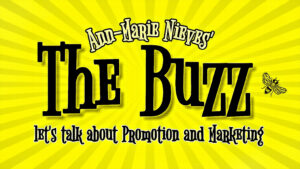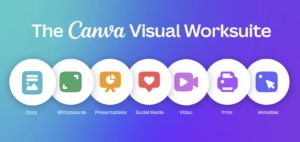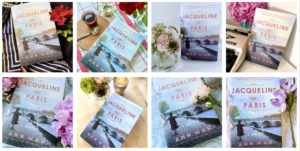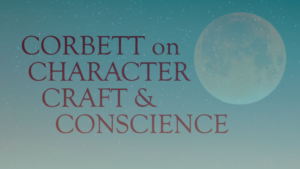Publicity
Last week I sent out a few extra emails. Emails that read:
-I’ve been meaning to congratulate you on xxx.
-How are you holding up – I know you’ve had a rough go and I just want you to know I’m thinking of you.
-I just want to say thanks for your referrals and your wisdom.
-You’ve been in my head and I just wanted to say hi.
The weeks go by so quickly. The days are filled with meetings, deliverables, and requests. Sometimes, we just can’t help but put etiquette aside. But it’s never too late to show gratitude and kindness.
Now, let’s answer some PR and Marketing questions…
So you’re interested in hiring a publicist? Here are some of the common questions I get asked during the discussion phase:
Do you work on commission or for royalties? This is a big no for most seasoned publicists. The math on royalties just doesn’t work. Despite the outcome of any campaign, PR pros put in significant hours, and a good number of us respond to client needs well outside of standard business hours and days of the week. The bottom line is don’t ask anyone to work for free. What you do want to ask is how the fee structure works: Is it a monthly retainer or a project fee and for how long?
Can you only focus on getting me only national press? I’m certain many publicists will say yes to this and in a previous year, I might have said sure too, but the answer to this question today is sorry, that just won’t work for me or for you. A publicist worth her salt is going to ask you what your goals are and where you would like to see yourself. And then she’s going to tell you where else you can and should be because she’s prepared to slice and dice your story for numerous audiences. I’ve found that a good majority of folks in the market for a publicist have little idea about the media out there – the magazines still in circulation, the outlets that have a books focus, those websites that have the best books roundups. And because national media is the hardest get, your campaign may not meet expectations.
I’ve written some articles, can you try and get them placed? I’m happy to take a look at what you’ve written and discuss your goals for placement. But I really want the client to come to me having done his research as to the possibilities. Too often I’m told to go after high-circulation magazines that are either no longer in print, not open to submissions, or whose content isn’t the right fit. When this happens, I will counter with some outlets that I believe could work.
Read MoreOne of the comments on my last post in which I asked writers if they liked their online persona, suggested the following:
“I would like to suggest a follow-up post you might consider. This one would be for older writers like me. They grew up without online anything, but in a time when values and standards related to the written word took precedence for anyone who wanted to be a writer. They still have something to say (even to younger readers), and know how to say it, but are lost in cyberspace.
What guidance or advice could you give to such writers? You run a successful PR company, and some writers with deep pockets might be able to do business with you. But what about others with some money, but limited resources? If the writing itself is what still matters, older writers need someone like you to point the way through the minefield. Otherwise, we will be silenced before our time.” – Barry Knister
Dear Lost in Cyberspace,
A good percentage of my client base is above 60. I’ve launched books by authors who have published for the first time at 80-something. To say I adore writers of retirement age would be an understatement. Why? They listen carefully. They are present. They show considerable patience. They value time. They respect the outcome even if it’s not the desired outcome.
The other night I took my daughter to the Jingle Ball concert at Madison Square Garden sponsored by iHeartRadio and Z100-FM. The crowd was rabid with pop music fans in glowing reindeer headgear and bright bulb necklaces. The evening was fantastic, but what I remember the most is singer/songwriter Charlie Puth saying the following, and I paraphrase…It’s great to see my songs on TikTok remixed by so many, but nothing beats this. His hand pans over the crowd of thousands that he just sang his heart out to. And man can he sing.
My advice to you Barry:
Tell your story.
After you’ve found the editor of your local paper, email them your pitch or snail mail a copy of your book with a copy of the pitch. Remember to say what town you live in. If you don’t hear back, send another email a few weeks later.
Go beyond local to your regional daily and magazine. Some communities even have local cable access programs and news and lifestyle websites that you can pitch.
Kathleen Troy and Dylan
I’m very excited to present today’s Author Up Close featured writer to the WU community. I met Kathleen Troy through her publicist and have been delighted to follow her journey to publication. Kathleen is an author, movie producer, and a writing and law professor at Cypress College, but her passion is dog training. She has combined her love of writing with her love of dogs in her Middle Grade mystery series Dylan’s Dog Squad. Three books in, Kathleen’s learned a lot about the industry, including why it’s important for authors to understand the difference between publishing their work and finding distribution for it. In this Q&A, Kathleen shares lots of valuable insight, and one of the most important lessons she says she’s learned along the way: find good people who can help you achieve your goals.
GW: Thanks for agreeing to share your writing and publishing experiences with the Writer Unboxed community. I like to start by asking writers about their author origin story; it’s kind of like a superhero origin story but with a pen. What’s yours?
KT: Writing has always been a part of my life. When I was growing up, if I had a bad day at school, I just came home and wrote myself a better one. No denial there. In undergrad, I minored in journalism. My father always liked to read my stories. When he was diagnosed with cancer at forty-seven, we were told from the onset it was fatal. So when he was in the hospital, I started writing a murder mystery novel for adults. When I visited with him, I would read him a new chapter. Sadly, he died before I finished the book, and I put it away.
One night I was at a very bad play, and I told my friend that my book was better than the play. He said, “Everyone always says that.” I insisted my book really was better and decided to finish writing it. I got an agent on my first try and an offer on my first submission. I was excited until I learned the offer was to sell the novel outright. It would no longer be mine. I really, really wanted to be published but I turned down the offer. I’d written the book for my father, and I realized that I didn’t want to sell a memory.
GW: You write Middle Grade fiction, and specifically, you’ve written a series about a group of friends and their dog, Dylan, solving mysteries together. How did the idea for the series come about?
KT: The Dylan’s Dog Squad Series is largely based upon Dylan, an American Cocker Spaniel, and his true-life experiences, adventures, and training.
In the series, Casey’s brother Aiden, an American professor living in South Korea, bought Dylan but got frustrated with the dog and sent him to Casey, his twelve-year-old brother in California. Casey is thrilled to have a dog, his mother less so. Casey and Dylan have thirty days: Casey to learn the responsibilities of dog ownership and Dylan to learn to be a good dog—or else. They form an inseparable bond, are never apart, and, in each book, they continue to grow as a unit.
The idea for the […]
Read MoreThe timing for my Writer Unboxed deadline was perfect this month: I just got back from the Texas Book Festival, held this past weekend in Austin, Texas. Much like other book festivals I’ve been to, it was well-attended, well-run, and over too quickly — I would’ve loved to spend several more days meeting readers, hanging out with other authors, and attending panels from both sides of the microphone. But the two days I did get to spend in Austin were very enjoyable. I’d recommend the festival to any author looking to participate.
Attending book festivals can be one of the most enjoyable parts of being an author, but they can also be overwhelming and not always satisfying, even if they’re well-run. I’ve started to keep a few principles in mind as I attend, and figured I’d share them with Writer Unboxed authors looking to make the most of their attendance at similar festivals, wherever they may be located. In this case I’m talking about book festivals aimed primarily at readers, not writers’ conferences. That’s a whole different ball game.
Here are just a few tips to try:
Make a plan. Not only do many book festivals have hundreds or even thousands of readers in attendance, but some also have hundreds of authors, with panels running simultaneously. Obviously you need to attend your own panel or speaking slot, but what else will you do while you’re there? Will you steal some time to work on your own writing? Sleep in to take advantage of the vacation? Make plans to re-connect with friends? Attend talks by authors you admire? You’ll probably deviate from your plan, but if you don’t make one, you may end up not really succeeding at any goal in particular.
Pack a copy of your book. If you’re traditionally published and your book is for sale at the festival, your publisher will generally take care of sending those books, but there are plenty of reasons to bring your own copy. First and foremost, you should have in front of you whenever you’re speaking, either solo or on a panel. It’s also handy to hold up if you’re having your picture taken. Full disclosure: I frequently forget this, and did not in fact have a copy of Scorpica with me in Austin. The moderator of our panel had her own copies on hand to display, thank goodness, but it’s best not to count on anyone else saving our authorly bacon. And if there’s a chance you might be asked to read from your book, you’ll certainly want to have one.
Take something to sign that isn’t your book. You’re going to be meeting lots of people, both authors and readers. You might have business cards or bookmarks, both of which are great; don’t forget to put them in your luggage. (Again, inspired by personal experience here, when I showed up at New York Comic Con last month 100% swag-free.) Having something to hand out can be very helpful if you’re signing next to a more popular author, if the festival runs out of your books, or if you have a conversation with someone and just want to give them a chance to remember you. I threw a pack of playing cards with […]
Read MoreSo much is expected of authors these days: not only the writing and editing of our work, but also promotion, speaking, social media, newsletters…the list goes on.
One efficiency tool used by many authors to help with promotion and social media is Canva, an online graphic design tool that can be used either on a computer or via an app on your phone. The benefits of Canva are endless: designs are professional-looking, easy to create, downloadable, and entirely customizable. You can mix and match designs (copy & paste is your friend here!) to achieve precisely the design you’re wanting. Canva also has an incredible “Help Center” full of design tutorials and content suggestions.
Most Canva design tools are free to use, though an upgraded “pro” version is available for $120/year for anyone desiring premium content. This gives you access to more fonts, branding kits, scheduled social media, and more.
Below, I’ve listed several design ideas for authors looking to get started with Canva. Or, for those of you already using the tool, perhaps something below will spur a new idea!
Canva design idea #1: E-books
This design idea is great for social media to advertise and promote that your book is available in e-book format. Simply choose a design template that you like (try element keyword searches like “kindle” or “ebook”.) Then, upload an image of your book’s cover and overlay it onto the template.
Don’t forget to utilize Canva’s resizing tool, too: it can quickly resize images to fit Facebook, Twitter, Instagram, and so on! No need to recreate the image every time.
In this image below, as indicated by the red arrow, I’ve overlaid my book’s cover onto a “blank” e-reader. I can then download this image and use across any social media.
Canva design idea #2: Audiobooks
The process for this is almost identical to the above, however I used the keyword search “audiobook.” Remember, as you look through Canva’s image results, try to choose ideas that are aligned with your social media or brand aesthetic.
Also, for both e-books and audiobooks, don’t forget that by posting promotional images, you also need to include purchase links so your followers can buy what you’re promoting!
In this image below, as indicated by the red arrow, I’ve overlaid my book’s cover onto a “blank” phone screen, which is situated next to a pair of headphones. I can then download this image and use across any social media.
Canva design idea #3: Press kits and speaker resumes
Press kits make an excellent addition to your website, so event organizers can quickly access key information about your work, location, social media reach, etc. Similarly, speaker resumes are beneficial if you’re seeking speaking engagements or want to partner with a speaker’s bureau.
Thankfully, Canva has countless templates for this. Whether you’re going for something edgy, whimsical, basic, or anything in between, you’re bound to find a design you like. Below are a few screenshots to give you an idea of Canva’s offerings in this space.
Canva design idea #4: Graphics for websites and newsletters
Hate pulling together imagery for your website and newsletters? You’re in luck: Canva can do so much of this heavy lifting for you. Below is an image I pulled together for a Writer Unboxed post about Read More
My family has been enjoying the ABC sitcom Abbott Elementary, about a Philadelphia public school with limited means that’s run by a principal obsessed with social media and youth. Abbott’s teachers are from different generations with almost nothing in common, but what they share is an incredible dedication to their professions and students. You may have heard that actress Sheryl Lee Ralph won an Emmy for her role as Teacher Barbara Howard. She’s outstanding.
The other night we watched the episode “Wishlist” and it struck a chord. Read on…it’s coming.
The teachers have shared their wish list of school supplies with the greater community, and instead of receiving the necessary notebooks and pencils that are needed, people are dropping off old fax machines that might smoke once plugged in.
Twenty-something teacher, Miss Teagues–ever the optimist–puts together a simple video to share on social media but history teacher Mr. Hill says that it’s missing a little something … the internet is a big place and you need to cut through the noise.
Anyone practicing social media as part of their career marketing efforts has heard about “cutting through the noise.” Am I right?
Miss Teagues seeks out Principal Ava Coleman who just happens to have a green screen in her office. Miss Teagues comments, I can get you a lot of views and that means a lot of supplies. But I’m gonna need full creative control. Do you twerk?
Do you twerk?
The stylized video in which Miss Teagues looks like a Marvel character gets 20K views in a matter of hours and is even shared by Taye Diggs! Her school supplies runneth over.
Now, Mrs. Howard, a seasoned motherly type, hasn’t gotten any new supplies and her students are using water to paint with. So Miss Teagues calls upon Principal Coleman again for help. Principal Coleman creates an emotionally manipulative video that makes the students and teachers look sad, impoverished, and hopeless. The video goes viral. Mrs. Howard receives boxes of supplies and genuinely believes that the Good Lord is working on her behalf. Until a group of influencers shows up with more cases of supplies each holding up their iPhones to capture Mrs. Howard’s reaction does Miss Teagues fess up to her meddling.
Mrs. Howard makes it clear that she doesn’t want her students to think they are lesser than others. To paraphrase…My kids don’t have half of the supplies they need most of the time, but they don’t need to know that. Our job is to build them up and make them confident. My students don’t need to feel less than others because they do not have stuff. Talk about what they do have, and not what they don’t.
Read MoreTherese here to introduce a heartfelt community post regarding a friend and guest of Writer Unboxed who needs our help now. It begins with a personal plea on her behalf, authored by her husband, continues with actionable steps you can take to help, authored by former WU contributor Allison Larkin, and finishes with a infographic that you can use and share to help other authors in general. Thanks for reading, and for sharing, WU community! Your support is very much appreciated.
Click the photo group above to be taken to a social media page filled with downloadable pictures you can share over Instagram or other social media sites!
Tuesday is a special day in the world of traditional publishing, because it’s the day that a whole lot of books are released into the world for the first time. These books represent a mammoth effort for those authors, as we who write story understand, as well as the publishing house that releases that book. Every book has an ideal plan — a unique collaboration involving the author, the publicist and marketing team, and important peripheral groups, from stores to clubs, that sign on early as a book’s champion.
But ideals rarely go off without a hitch, because reality brings chaos and chaos can be catastrophic. Especially when the author herself can no longer participate in a book’s release.
Such is the case this month–today–with longtime friend, supporter, and guest of Writer Unboxed, author Ann Mah.
Ann’s story in her husband’s words:
My wife, Ann Mah, always fights hard against what writers call dull thud day — that day when their new books hit stores and sites with little fanfare, an anticlimax. She pushes for her own books, of course, but also for books by authors like her who must do so much on their own to promote their work. Ann’s new novel, “Jacqueline in Paris,” comes out September 27. Because of a serious sudden illness, she can’t make the case for it, not online or in person. It is a great book. I would be deeply grateful if you faithful unboxed writers could help me spread the word.
“Jacqueline in Paris” tells the story of Jacqueline Bouvier Kennedy Onassis’ junior year abroad in Paris in 1949-50 — a year she described as the happiest in her life. Ann immerses us in Jackie’s feelings and thinking as she encounters France’s postwar awakenings and reckonings. Her experiences unfold against the backdrop of Paris, which Ann depicts vividly and from the viewpoint of an attuned resident — the scents of fir trees and coal smoke on the street before Christmas; the dusty Roman amphitheater tucked behind a bus stop. Ann also captures the intellectual and geopolitical ferment that made life in Paris and other European capitals so intense in the immediate postwar period.
The book grew from a travel story Ann wrote for The New York Times about Jackie’s time in Paris as a student — but she knew there was more to explore. Ann researched the novel with the energy and rigor of a historian, going horseback riding in the Bois de Boulogne as Jackie did, enjoying […]
Read More
I’ve spent the last several months rekindling an old relationship. We have sneaked off to hotels in Philadelphia and Minneapolis, and to the quiet mountains of Vermont. We’re already plotting another getaway in November.
Before you get too concerned about where I’m headed with this post, please note my travel partner isn’t an old flame — or a scandalous new one. I’m referring to my carry-on roller bag. And those weekend getaways? Think literary conferences.
My no-frills roller bag and I are out of practice after two years of Zooming into literary conferences instead of traveling. We’re both a little older. My needs have changed, and I now expect more out of our 10-year relationship. Covid has altered how I travel, in big ways and small. I’m now obsessed with flying without checking any luggage because of the increase in flight delays, cancellations, lost bags, and missed connections. I want to get in and out of the airport, bus, or train station as fast as possible. And I don’t want to lose my bags.
I’ve assembled a list of my favorite travel hacks that allow me to comfortably pack for at least five days at a literary conference or on a book tour without checking anything. I realize these tips and hacks won’t work for everyone. The types of fabrics, the size of the clothing, and the season will impact how much can fit in any bag. This list is meant to share ideas that work for me. Hopefully, you will find some of them useful. Some items are relatively cheap; others are more expensive. They’d make thoughtful gifts for the writer (or any traveler) on your shopping list — including yourself!
My favorite travel hacks:
All the clothes in this image fit inside the hanging shelves, which compress to fit in a roller carry-on bag.
Read More
In a recent email from author Emily Kimelman, she laid out a whole new model for self-publishing that I found especially intriguing, and I thought the Writer Unboxed community would as well.
Emily is the best-selling author of two series—the Sydney Rye mysteries and the Starstruck thrillers—as well as the Kiss Chronicles urban fantasy series under the name Emily Reed. Spending her early years in the Soviet Union (her father was a foreign correspondent for the Philadelphia Enquirer), she caught the wanderlust bug at a young age and has traveled the world from Mongolia to Costa Rica to Spain and beyond, and she often bases her books on her experiences abroad.
(Personal note: Emily is also my wife’s best friend, and they’ve been “sisters from different misters” since they met at age twelve while attending The Baldwin School in Bryn Mawr, Pennsylvania.)
I recently invited Emily to share her publishing experiences and her unique new venture with our readers.
Why did you originally decide to self-publish?
In 2005, I was in my twenties and coming up with my life plan.
I wanted to write mystery novels because I enjoyed reading them, and writing them seemed like the most fun way to make a living.
I researched how to support myself as an author and decided I’d write a stunningly good book, get an agent, then a publisher. Then they’d take it from there while I wrote in cafes around the world with my dog sleeping peacefully at my feet and my fingers clacking away on my keyboard.
I did write a stunningly good book (it took 5 years), and I did get an agent …but the rest didn’t fall into place until I became my own publisher.
I’m entrepreneurial by nature and watched the self-publishing market emerge from a shameful little corner of the internet into a powerful force traditional publishers were ignoring. So in 2011, when my agent still hadn’t sold my book, I figured I had nothing to lose by going indie.
How have you monetized your books – in particular, share with our readers “how it works” with Amazon.
Retailers like Amazon pay between 30-70% royalties depending on the cover price.
While self-publishing gives authors more control and higher royalties than traditional publishing, retailers don’t share any data—like who bought your books. You’re basically a wholesaler who is allowed to set the retail price.
Also, Amazon runs ads for other products—and books—on your titles’ pages which makes sending your readers there kind of a gamble—they can easily be distracted before clicking the buy button.
How did this part of your career go?
It went great! And I still sell my books on all major retailers.
The better I became at advertising and promoting myself, the more money I made. But I also started to understand how disadvantaged I was compared to others’ selling digital products online.
When you’re spending multi-five figures on ads, and not getting any data from your traffic, you’re paying to give Amazon a lot of customers.
The first month I grossed six figures and retailers kept 35%, I knew it was time to move toward direct sales.
BookFunnel, a delivery service for ebooks that indie authors use to send out ARC copies and reader magnets, integrated with Shopify and other sales platforms a few years ago. But until […]
Read MoreFor my last post in April 2022 I asked a few authors at different stages in their careers, what did they learn about book marketing and PR which was surprising. The feedback I received from writers was that these little nuggets of book marketing communications wisdom really hit home. So, I’m at it again with advice from five savvy authors.
The Differences Between PR and Marketing
“I think I didn’t realize at first that book marketing and PR were two completely different entities! In the beginning, before someone explained it to me, I thought PR and marketing were all the same thing. believing it all came under the umbrella of any kind of exposure for your book. It wasn’t until a dear friend explained that marketing “cost the publisher money” to ensure a novel was “seen” by potential readers with promotions like advertisements and blog tours, did I fully understand it was something that was guaranteed because it was paid for by the publisher. –Alyson Richman is the USA Today bestselling and #1 international bestselling author of several historical novels including The Secret of Clouds and the forthcoming The Thread Collectors with Shaunna Edwards.
A Holistic Approach
I originally thought that the objective of marketing and PR was to get my book sold. Period. What I’ve learned is that marketing and publicity create channels to reach readers via influencers, podcasters, bloggers, traditional media, etc., who then serve as conduits directly to readers. The more channels you employ to draw attention to your book, the better because this is an extremely competitive industry in terms of getting your pages onto the eyes of readers. It’s also imperative to collaborate on the marketing and publicity of your book and to not assume you can sit back and let your publicist and/or marketing professional do all the work. Yes, they understand the business of pitching and positioning your book. But, you know your story better than anyone, so when you have an idea or an angle that you feel can influence readership, go with it. Or, at least, run it by your publicist; she’s a wonderful resource.-Eileen Brill has written professionally for the restaurant, hotel, and commercial real estate industries. A Letter in the Wall is her first novel.
PUBLICITY BASICS 101: Get to Know Your Publicist
Okay, so you have been working with your wonderful editor on this precious book of yours for a long, long, long time. You feel that you now know your editor as well as you know your husband or parents or child and your editor most likely feels the same way about you.
But what do you know about your publicist?
Most likely she or he is a total blank in your mind. So although I’m saying get to know your publicist, you really want them to get to know you in a way that your editor might not know you— or at least they don’t know what you feel is important about your book in terms of connecting with the marketplace. A slight footnote here: Editors don’t really like the word ‘market’ or market place—it’s too coarse for them I’ve discovered. Too transactional, etc. The vulgarity of the terms […]
Read MoreWhen it comes to book marketing, this is what’s been the water cooler talk recently:
I’ve said this before–I learn a lot from my clients. Many come to me with a wealth of marketing and PR hits and misses. For this post, I asked a few authors at different stages in their careers, what did they learn about book marketing and PR which was surprising. Additionally, I wanted to know if they had a quick tip to share with a debut author. Here’s what they said.
Randy Susan Meyers is the internationally bestselling author of five novels, including Waisted, The Widow of Wall Street, Accidents of Marriage, The Comfort of Lies, and The Murderer’s Daughters. The Fashion Orphans, her most recent release (with M.J. Rose), is available now.
Learning to do Facebook ads myself surprised me in that a) I could master the skill, 2) I found I enjoyed learning graphics, and 3) that I could track how my sales were affected—and thus saw the effectiveness/ineffectiveness of what I learned.
What’s one quick marketing tip I’d like to offer a debut novelist?
One quick tip is this: Canva’s learning curve for graphics is far easier than others. Also, they have the sizing for ads and social media built-in. (My second tip is this: find what you enjoy doing (for me, it was graphics and newsletters) and dig deep into that modality.) *We discussed “find what you enjoy doing” in 2019 post.
Carleton Eastlake, TV writer and producer, debut author of Monkey Business (out on May 3)
As a new novelist, I attended the Association of Writers and Writing Programs in Philadelphia this year with my publisher to sign advance copies of my debut novel Monkey Business. In typically shy author fashion, I vaguely smiled at the passing crowds and prayed for a response. Fortunately, at the turn of the hour, I was joined by a second signing author who charmingly invited over anybody who for even for an instant in typically shy reader fashion almost met his look while wandering down the aisle.
I should have expected it – although a new novelist, I’m an experienced TV writer-producer who has worked fan conventions – but I really was astonished at how most passing readers were delighted to be drawn into an encounter with a friendly author. He sold out not only the publisher’s shipment of his own books for the convention but sold an astounding number of mine as well.
It’s hard for most people, authors included, to engage in this way, being inviting and available, amusing and persuasive – but not harassing, stalking, or looking desperate. But in that hour I learned it’s a skill worth bravely developing. (Which, I should add, that other author had absolutely, consciously perfected: it […]
The German playwright and novelist Gustav Freytag wrote Die Technik des Dramas, a definitive study of the five-act dramatic structure, or arc, in which he laid out what has come to be known as Freytag’s pyramid. Under Freytag’s pyramid, the plot of a story consists of five parts. (Definition paraphrased from Wikipedia).
1. Backstory/Exposition: The story begins in late January, 2020, when the debut novelist (nine months out from pub day) hears an international news piece about contagion on cruise ships. The author is on a cruise ship; a three-week trip around South America. The ship staff have protocols—lifeboat drills and announcements, outside doors locked in high seas. The author lines up with the other passengers, and like obedient preschoolers they insert hands into a portable spray-sanitizer station before returning onboard after shore excursions. She finds the delay an inconvenience, the alcohol gel irritating. She starts to carry scented hand cream. The term “Legionnaires disease” circulates and goes away. From Buenos Aires, the author telephones a foundation in France to secure the use of a photograph from 1930 for cover artwork. At sea, she is frantic for a good internet connection; final blurbs are trickling in, the cover design is finalized, and the title font.
Then, somewhere near the Falkland Islands, there is a new page up on Amazon, with her own name and a preorder link for her book. The author drinks free shipboard Champagne and Googles her title over and over and each time it hits she feels a little thrill. She posts photographs of the cover design on her Instagram page along with whales and seals and by then, the cruise is over and she returns home, anxious to begin pre-publication marketing of her debut novel.
Inciting Incident: CNN reports about a ‘wet market’ and pangolins, and the world gets stranger and stranger. “Those poor authors who have books coming out in June!” the author laments, with shallow sympathy and large-but-silently selfish relief, that her book does not come out until August 2020, and all this virus foolishness will be old news.
The author has a live reading with a poet in late February, in a bookshop, and tells herself that by August and launch time, she will have her talking points and gestures down. She orders a Great Outfit for the book festival talk, along with mounted posters of her book cover to stand in the background behind the podium. The Great Outfit is expensive; a little edgy-in-a-good-way, and she rationalizes that it will help her feel confident at public appearances.
2. Rising action: By March, signs of spring are appearing, but the author’s focus is not on her garden. The news is sobering. Dr. Fauci is introduced into the plot. The author worries about elder loved ones and is afraid to get on a plane and fly halfway across the country and stay in a hotel and mingle with thousands of people in a convention center. Thousands of attendees back out, thousands vow to go anyway. She cancels attending AWP at the last minute. She feels bad for the members of her speaking panel, but they replace her easily.
Read More
Please join us in welcoming Victoria Strauss to Writer Unboxed as a new regular contributor. Victoria is not only a multi-published novelist and author of short stories, she is the voice of Writer Beware–a group dedicated to empowering writers by unmasking writing scams and schemes. We’ve been fans of Writer Beware and Victoria Strauss for as long as we’ve existed here as a site, and we could not be happier to have her as a member of the WU team. Welcome, Victoria!
When I do presentations and Q&As, I’m often asked to name the most common scheme or scam writers need to watch out for.
Usually, I have to think a moment before I answer—not just because the universe of writer-focused predation is constantly evolving (for instance, there are far fewer fee-charging literary agents now than there were when Writer Beware was founded), but because the ways in which writers can be tricked and exploited are so many and various that it’s hard to choose.
These days, though, I can respond without hesitation. By far the most prevalent writer-focused scams are solicitation scams.
Solicitation scammers contact writers out of the blue with publishing-related offers that seem too good to be true. A literary agency is interested in your work! A prestigious publisher wants to acquire your book! A film producer wants to turn your novel into a movie! A marketing company can expose you to millions of potential fans!
You know the old adage, though: if it sounds too good to be true, it probably is. In reality, these offers are not about boosting your career or raising your profile. Whatever enticing carrot a solicitation scammer may dangle before you, the real aim is to get your money.
Solicitation scams and schemes are not new. Back in the days of snail mail, costly print vanity publisher Dorrance Publishing was notorious for soliciting submissions from copyright registration and magazine subscription lists. (Dorrance has re-tooled itself for the digital age, so its solicitations now come via email.)
Profiteering contest and awards programs have also long been prolific solicitors (for instance, J.M. Northern Media, which runs multiple high-entry-fee “festivals”), as have bogus Who’s Who registries. Predatory author mill Omniscriptum regularly solicits submissions to its many imprints, and if you write nonfiction, you may have been contacted by Close-up TV News, a pay-to-play “news” program that has been chasing customers for nearly two decades.
Over the past three years, though, the volume of solicitations has exploded, driven by a huge rise in publishing-related scams from overseas, and also by the pandemic, as in-person networking and marketing opportunities for writers have dwindled and online activity has increased. Self-published and small press authors are the solicitors’ favorite marks. But any writer can be a target.
WHAT YOU MAY ENCOUNTER
Fake Literary Agents and Agencies
Real, reputable literary agents—whose inboxes are overflowing with submissions and who have no need to solicit clients–rarely reach out directly to writers they don’t already represent. For scammers, on the other hand, cold-call solicitation is their main recruitment method. And large numbers of them are posing as literary agents and agencies.
Fake agency solicitations typically involve strategically […]
Read MoreAt the Pont Alexandre III over the Seine in Paris, January 1, 2022. Image – Getty iStockphoto: Marina113
‘I’m Tired of My Ego’
That’s become one of my favorite lines of 2022, a young year that already feels three decades long. “I’m tired of my ego.”
This sentiment was shared by a Christian artist who is referred to, Madonna-like, by a single name, Lecrae. (He might begin by trying to remember a first or last name.) I ran across his confession while researching recent marketplace uses of the term ego. Lecrae, who is a 42-year-old Texan, “spent the weekend posting photos and videos of himself at the SoFi Stadium” during the You Know What Bowl. Friends later “humbled him,” Lecrae graciously conceded, according to Jeannie Ortega Law at the Christian Post.
I’d been set thinking about the place and purpose and potentials of ego by our columnist at Publishing Perspectives, Richard Charkin. Just in time for the onset of the first hand-over-fist awards-news season of this year, Charkin handed me a column we headlined Richard Charkin on ‘LitFlation’: Prizes, Awards, and Egos.
Charkin, the former chief of London’s Bloomsbury Publishing (of JK Rowling fame), writes about book and publishing awards in that piece, “The only impact seems to be to inflate — more inflation — the egos of recipients. When will this inflation ever end? When will publishers’ egos be large enough? When will we spend as much time and effort supporting our authors, particularly when they’re under attack, as we spend on parading against our peers and competitors?”
While Charkin, a publisher, generously points to publishers’ egos as being a driver in the jungle of these many honors, we in the news media also see a certain amount of primo ego in the administrations of some of the awards, themselves, because we’re the ones who hear from their PR agents. I always hope they’ll include a bottle Chanel’s Égoïste with a press release.
To give you a look at the proliferation of these awards on the international scene, in the 35 publication days since January 3, we’ve published 34 awards stories, just shy of one per day. These are jury lists, longlists, shortlists, winners’ lists, and a few stories about awards issues, as in the European Writers’ Council’s decision to withdraw as an administrative body in the European Union Prize for Literature. There are, as I write this, 12 more awards stories in our editorial calendar’s queue, all vying for publication. New ones arrive daily. Some simply won’t make it. We’re not Awards Perspectives. The news cycle is very high.
One insight into the field is found in such self-flattery as “the best-loved award” of a given genre. There’s an awards program that actually graces itself with that unknowable attribute in its press releases. Is that a clue to who the prize’s administrators are thinking about? Is it the authors and publishers they commend?
Much of this has to do with the necessary oxygen of visibility, of course, and that means news coverage. If an award is juried, longlisted, shortlisted, and conferred, and nobody reads about it in the press, has a tree fallen in the […]
Read More

















